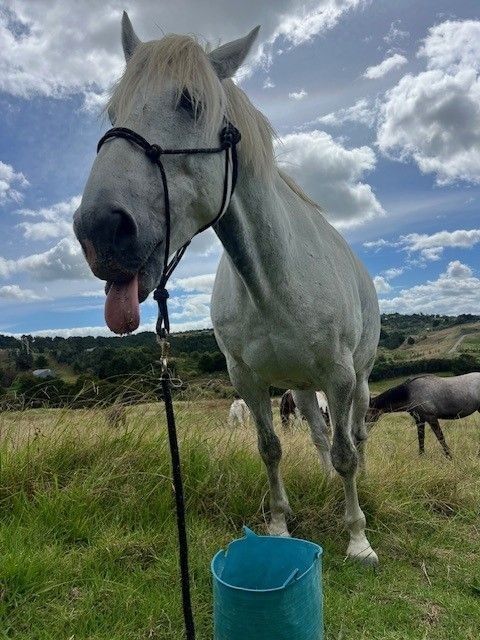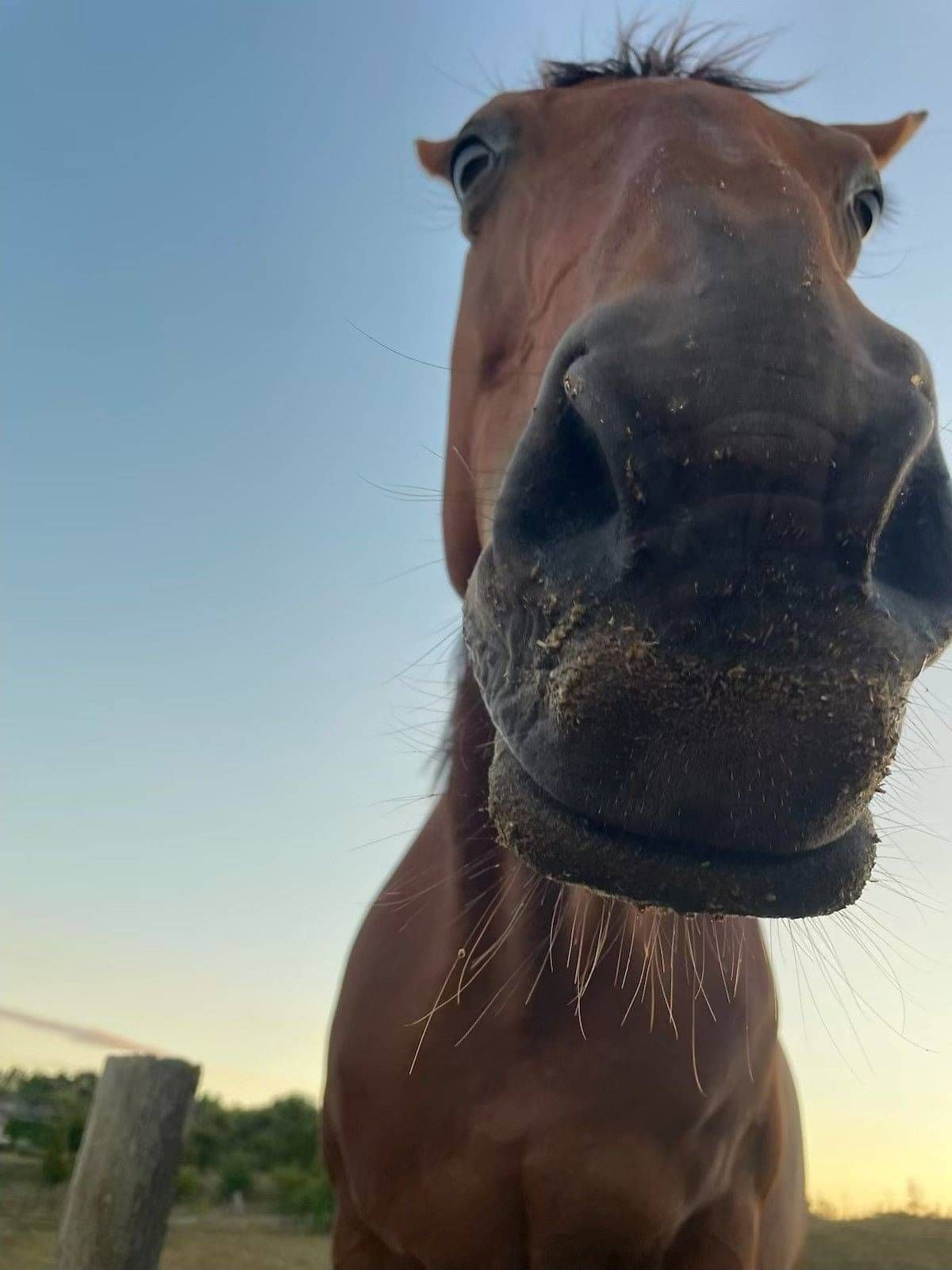Dentistry
Proper dental care is a crucial component of overall horse health. Horses rely on their teeth to chew efficiently, and dental issues can lead to weight loss, discomfort, and performance problems. Regular dental maintenance ensures that your horse remains healthy, comfortable, and able to eat properly.

The Importance of Equine Dentistry
Horses’ teeth grow continuously throughout their lives, requiring regular attention to prevent sharp edges, uneven wear, and other issues that can lead to pain and poor digestion. Without proper care, dental problems can cause behavioural changes, difficulty eating, and even weight loss.
Signs of Dental Issues in Horses
Difficulty chewing or dropping feed (quidding)
Weight loss despite adequate food intake
Resistance to the bit or head tossing
Excessive salivation
Foul breath or nasal discharge
Swelling in the face or jaw
Undigested feed in manure
How Often Should Horses Have a Dental Check?
Young horses (2-5 years old) should have a dental check every 6 months as their teeth are developing rapidly and shedding baby teeth.
Mature horses (5-20 years old) should have a check every 12 months to maintain balance and prevent sharp points.
Senior horses (20+ years old) may require more frequent check-ups as tooth wear and loss can become an issue.
Common Equine Dental Procedures
Dental Examination & Floating
Floating is the process of filing down sharp points on the teeth to prevent pain and ulcers.
Regular dental checks help detect problems such as misalignment, retained baby teeth, or abscesses.
Addressing Wolf Teeth & Canine Teeth
Wolf teeth (small, vestigial teeth in front of the molars) can interfere with the bit and are often removed.
Canine teeth (mostly in geldings and stallions) may need smoothing to prevent discomfort.
Managing Severe Dental Issues
Advanced conditions such as periodontal disease, abscesses, or fractured teeth require prompt veterinary attention.
If a horse has lost teeth, adjustments to their diet (such as soaked feeds) may be necessary to ensure proper nutrition.
OTTBs and Dental Care
Off The Track Thoroughbreds (OTTBs) often have dental issues due to their racing career. Many OTTBs have experienced:
Harsh bitting leading to gum sensitivity and ulcers.
Uneven wear from grain-heavy diets and limited natural grazing.
A lack of regular dental maintenance before retiring from racing.
For this reason, all newly rehomed OTTBs should receive a full dental assessment and float to address any existing issues and ensure they transition comfortably into their new life.
Best Practices for Equine Dental Care
Start with your veterinarian to make a personalised plan for your horses dental care.
Schedule annual dental exams with an equine dentist or veterinarian.
Monitor your horse for signs of discomfort or difficulty eating.
Ensure your horse has access to plenty of quality forage, which promotes natural tooth wear.
Check young and senior horses more frequently to address their unique dental needs.
Equine dentistry is not just about preventing discomfort, it plays a vital role in a horse’s overall health, weight maintenance, and ability to perform. Regular dental care can prevent serious health problems, improve your horse’s quality of life, and ensure they remain happy and healthy for years to come.
Note: This information is intended as a general guide. Always consult with a professional for advice tailored to your horse's individual needs.

If you need more support and would like assistance from a qualified professional, we are here to help. The Rodney Animal Rescue Education Fund is available to help new horse owners, particularly those who have taken on an Off-the-track-Thoroughbred, and feel they are out of their depth or need assistance to ensure your new equine friend has all their needs met.
Learn more about the RAR Education Fund!
